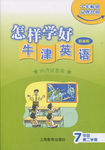题目内容
“Sending thank-you notes is becoming a lost art,” mourns May Mitchell, a syndicated columnist known as “Ms Demeanor” and author of six etiquette(礼节) books. In her view, each generation, compared with the one before, is losing a sense of consideration for other people. “Without respect,” she says, “you have conflict.”
Ms. Demeanor would be proud of me: I have figured out a way to ensure that my children always send thank-you notes. And such a gesture is important, says Ms. Demeanor, because “a grateful attitude is a tremendous life skill, an efficient and inexpensive way to set ourselves apart in the work force and in our adult lives. Teach your children that the habit of manners comes from inside---it’s an attitude based on respecting other people.”
A few years ago, as my children descended like piranhas (一种南美淡水鱼,喜吞食或攻击) on their presents under the Christmas tree, the only attitude I could see was greed. Where was the appreciation of time and effort?
A thank-you note should contain three things: an acknowledgement of the gift (Love the tie with the picture of a hose on it); a recognition of the time and effort spent to select it (You must have shopped all over the state find such a unique item!); a prediction of how you will use your gift or the way it has enhanced your life (I’ll be sure to wear it to the next Mr. Ed convention!).
So, five years ago, in one of my rare flashes of parental insight, I decided that the most appropriate time to teach this basic courtesy is while the tinsel (装饰用光亮金属) is hot. To the horror of my children, I announced that henceforth every gift received will be an occasion for a thank-you note written immediately, on the spot.
I have reluctantly given my kids the green light to send e-mail thank-you notes; though hand-lettered ones (at least to me) still seem friendlier. But pretty much any thank-you makes the gift giver feel special—just as, we hope, the recipient feels. It’s a gesture that perfectly captures the spirit of the holidays.
41. 1.in Ms. Demeanor’s point of view, children born in the ______ is probably the least respectful generation.
|
A.1960s |
B.1970s |
C.1980s |
D.1990s |
42. 2. The phrase “set oneself apart” (Para. 2) means _______.
|
A.to reserve to a particular use |
B.to put to one side |
|
C.to make noticeable or outstanding |
D.to determine to purse |
43. 3.According to the passage, a thank-you note may contain the following information EXCEPT “_______”.
|
A.I love the pearl necklace you bought me for my birthday |
|
|
B.it must have taken you a long time to find just the right thing for me |
|
|
C.is it very expensive |
D.I promise I will wear it on my wedding day |
44. 4.How did the author feel when she saw her children searching under the Christmas tree for their presents?
|
A.Greedy. |
B.Cheerful. |
C.Laughable. |
D.Disheartened. |
45. 5.Which of the following statements is NOT TRUE about the author?
|
A.She feels hand-written letters are friendlier than word-processed ones. |
|
B.She does not allow her children to sent email thank-you note. |
|
C.She thinks the best time to teach her children the basic etiquette of appreciation is to strike while the iron is still not. |
|
D.She thinks a thank-you note can make the gift giver feel special just as the |
recipient does.
1.D
2.C
3.C
4.D
5.B
【解析】略

 怎样学好牛津英语系列答案
怎样学好牛津英语系列答案Teenagers in England do much the same as children in America do. They enjoy sending messages by their mobile phones and they also like swimming, listening to the latest music, watching TV and surfing the Internet.
How do teenagers in England spend their free time and holidays? Let’s follow Sally, a British teenager, and spend five days with her during her school holiday.
Day One
After breakfast, Sally’s mother went out and left her alone at home. She checked her mobile phone during lunch —one of her friends sent her a message early in the morning. Dinner was at 6:30 p.m. After that, she finished her English home-work. Then she surfed the Internet.
Day Two
Sally and her mother paid a visit to their friends and went swimming together. Later, they went shopping for clothes and books, and had dinner in a restaurant.
Day Three
She went to the supermarket with her mother to buy fish and chips for lunch as well as some pens. After she got back home, she spent the next few hours surfing the Internet and watching TV.
Day Four
She surfed the Internet. Her mother took her out for lunch before she went to work. She then read stories after lunch.
Day Five
She woke up at 2 p.m., and so did her mother. They went to a park. Her mother met some friends there. When they got home, it was already time for dinner. Afterwards, she did her homework until 10 p.m.
1.When did Sally do her homework?
|
A.In the morning. |
B.In the afternoon. |
|
C.At lunch time. |
D.In the evening. |
2.Sally and her mother went shopping for the second time to buy __________.
|
A.food for lunch and pens |
B.some books and pens |
|
C.some fish and clothes |
D.food and books |
3.Which of the following things did Sally do on Day Four?
|
A.She went swimming. |
B.She went out for breakfast. |
|
C.She read books. |
D.She went shopping. |
4.According to the passage, it can be inferred that ________.
|
A.surfing the Internet has become an important part of teenagers’ lives |
|
B.parents shouldn’t leave teenagers alone at home |
|
C.teenagers don’t usually do their homework during their school holidays |
|
D.a park is the best place to meet a friend |